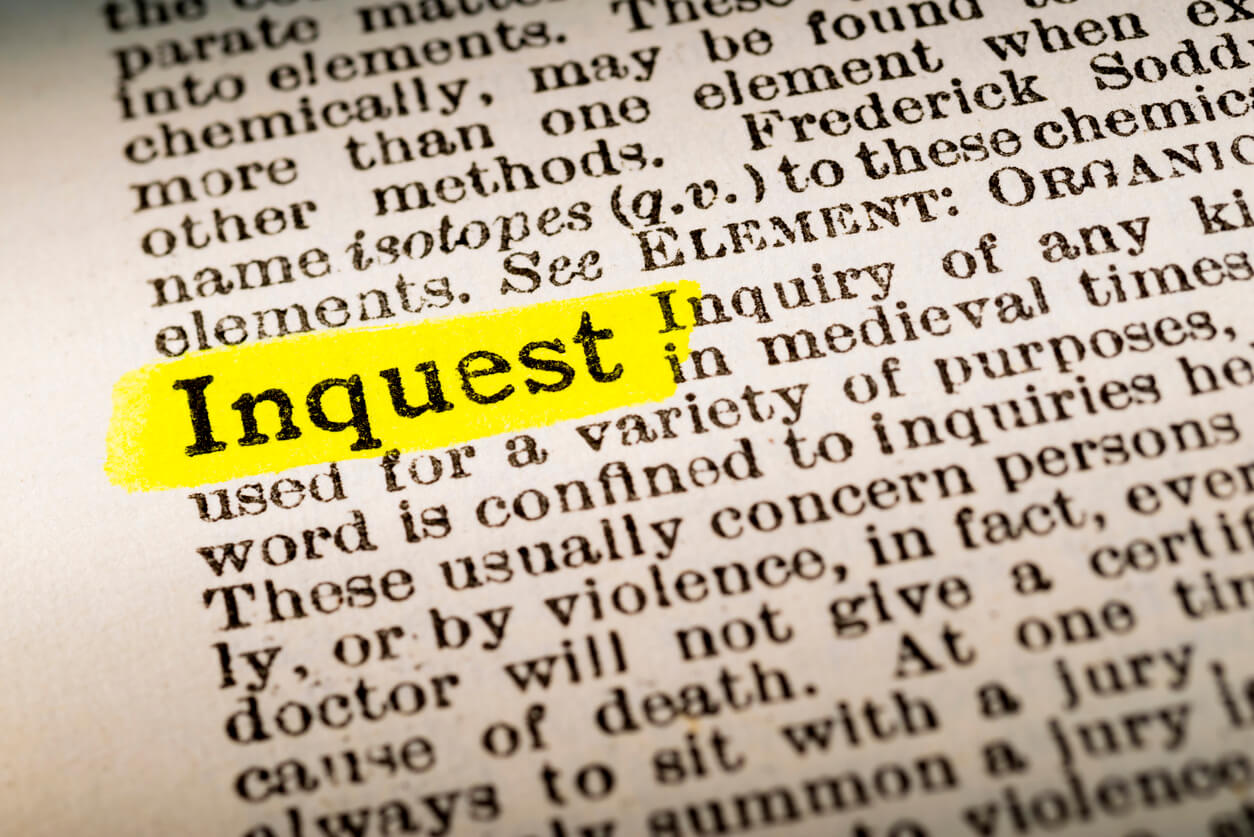An inquest is an open, public administrative hearing in which the County Coroner gathers information about suspicious deaths. Inquests are not adversarial proceedings. On June 11, 2020, by Executive Order, King County, Washington expanded its inquest program to include any death that involves a member of law enforcement of King County when carrying out official duties. Inquests in King County that do not involve law enforcement-related deaths only happen in extraordinary situations.
We see stories about inquests on murder mystery television shows, but you might not know many people who have actually attended one of these events. Like so many other things, an inquest involves far less drama than the television version, but the outcome can lead to criminal charges. Because of the potential for adverse legal action after an inquest, it can be smart to talk with a Seattle inquest attorney if you get called to testify at an inquest.
The Procedure for Conducting Inquests
The process involves multiple steps in King County.
- The County Prosecuting Attorney’s Office investigates the death and notifies the County Executive when they complete the investigation. The Prosecuting Attorney advises the County Executive about the appropriateness of an inquest.
- The County Executive makes the decision on whether to hold an inquest. When going forward with an inquest, the County Executive appoints a manager to handle the inquest. The manager appoints an administrator to conduct the inquest. The Prosecuting Attorney gives the manager a complete copy of the investigation file.
- The administrator holds a pre-inquest conference and asks the Prosecuting Attorney to issue subpoenas for witnesses and documents.
- The King County Superior Court provides the jury (called a panel), a courtroom, a bailiff, a reporter, and security for the hearing.
- The Department of Public Defense can assign an attorney to represent the family of the deceased person unless the family has a private attorney.
Who Can Participate in the Inquest Hearing
Because an inquest is not a judicial, adversarial hearing, but rather, a fact-finding procedure that focuses on treating all the parties fairly and being transparent to the public, these hearings are not the same as a typical courtroom trial.
These parties have a right to participate in the inquest:
- The family of the deceased and their attorney.
- The member of law enforcement involved in the death, with an attorney.
- The agency for whom the law enforcement member works, with an attorney.
- The manager the County Executive appointed.
- The administrator and pro tem attorney the manager appointed to conduct the inquest.
- In cases that involve a member of an Indian tribe or Indian lands, a representative of the involved Indian tribe.
Each of the parties has a right to call its own witnesses to help the panel understand factual information about the death.
After all the evidence, the administrator gives the panel questions they must answer with “Yes,” “No,” or “Unknown.” The panelists are allowed to provide an explanation of their answers on the form.
The panel deliberates the evidence and the questions. While the panelists discuss their impressions with each other, every panel member completes the questions individually. The responses of the panel do not have to be unanimous.
The manager gives the findings of the panel to the County Executive. In the interest of keeping the public informed, the manager also creates a website where the manager posts the inquest schedule, file, stipulated facts, inquest recordings, and the findings and recommendations of the panel.
Contact Jennifer today to discuss your situation in detail. She can advise you of your legal rights and can represent you.
DISCLAIMER: This post is intended to share my perspective, insights, and some general information on inquests. It is not legal advice and is not intended to substitute for legal advice. You should consult an attorney to obtain legal advice for your individual situation and case.

